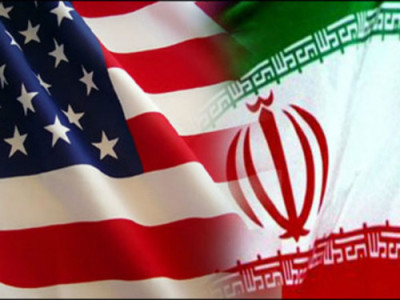LATEST: Larijani Tells Parliament To Back Nuclear Talks
Officials from Iran and the US opened their first scheduled bilateral talks in 35 years on Monday, meeting in Geneva in pursuit of a comprehensive nuclear agreement.
The talks continue today, with representatives of the European Union also participating. Deputy Secretary of State William Burns is leading the US delegation, while the Iranian team is headed by Deputy Foreign Minister Abbas Araqchi.
No details were released of Monday’s discussions, which come a week before the 5th round of negotiations between Iran and the 5+1 Powers over a comprehensive deal.
However, Araqchi indicated that a settlement may not be reached by July 20, when an interim Joint Plan of Agreement expires:
We hope to reach a final agreement (by July 20) but, if this doesn’t happen, then we have no choice but to extend the Geneva deal (Joint Plan of Agreement) for six more months while we continue negotiations.
It’s still too early to judge whether an extension will be needed. This hope still exists that we will be able to reach a final agreement by the end of the six months on July 20.
The Deputy Foreign Minister said Monday’s talks were held in a “positive and constructive” atmosphere.
After the talks in Geneva, the Iranian delegation will meet Russian officials in Rome on Wednesday and Thursday.
French Foreign Minister Laurent Fabius said on Monday that direct talks between Iran and France will also be held this week, and Tehran has said there will be a meeting with German negotiators.
Fabius was downbeat in comments on Tuesday on French radio:
We are still hitting a wall on one absolutely fundamental point which is the number of centrifuges which allow enrichment,” Laurent Fabius told France Inter radio on Tuesday.
We say that there can be a few hundred centrifuges, but the Iranians want thousands so we’re not in the same framework.
Iran has said it needs its current stock of 19,000 centrifuges — and more — for self-sufficiency in the enrichment of 5% uranium. The US, France, Britain, and Germany have all said that Tehran needs far fewer than 19,000, as Russia has guaranteed supply of 5% uranium for Iranian nuclear reactors until 2021.
Larijani Tells Parliament To Back Nuclear Talks
Speaker of Parliament Ali Larijani has reiterated support for nuclear discussions, calling on legislators to fall in line.
Larijani, often used to put out the opinion of the Supreme Leader, acknowledged that some MPs may have “differing views” on talks with the 5+1 Powers. However, he told the legislators that, as officials were “working within the framework of our national rights”, the MPs should “support Iran’s negotiators and experts”.
Rouhani Ally Named Head of Tehran University
Defying pressure from hardliners, the Government has named Nili Ahmadabadi as the head of Tehran University.
Ahmadabadi, a Professor of Metallurgy at the University, backed President Rouhani in the 2013 election. He replaces Farhad Rahbar, a supporter of Mahmoud Ahmadinejad who was pushed out in February after six years in charge.
The Higher Education Ministry made the announcement as the Supreme Leader implicitly warned the Government not to push too hard for academic freedom, after the repression of professors and students during the Ahmadinejead years.
See Iran Analysis: Supreme Leader Slaps Down Rouhani Over Academic Freedom
Rouhani Pursues Engagement, Fight Against “Terrorism” in Visit to Turkey
President Rouhani opened a high-profile visit to Turkey on visit with a meeting with Turkish counterpart Abdullah Gul and general statements about the region and economic cooperation.
Rouhani said, “Iran and Turkey are resolved to fight violence, extremism and terrorism and they use all their possibilities and power to this end and they are determined to increase their cooperation and spare no efforts in this regard.”
The President specifically mentioned the Syrian crisis and escalating violence and insurgency in Iraq.
Rouhani is hoping to distance Ankara from its support of the Syrian insurgency, as Iran seeks to maintain President Assad in power with its vision of a political resolution.
Iran is also hoping to revive trade and investment, which has been affected by US-led sanctions. Tehran has set a goal of $30 billion in Iranian-Turkish commerce by 2015.
The two countries signed 10 agreements on Monday. Areas include joint film production; cultural, scientific and educational exchanges, tourism cooperation programs; a cultural heritage program; and cooperation between institutes and postal organizations.
Iranian media declared Gul’s support of Rouhani’s statements: “We believe that increasing talks between the two countries to broaden relations and the campaign against terrorism will help to the establishment of stability in the region.”
The Turkish President was also depicted as backing Iran’s position in nuclear talks with the 5+1 Powers, “We don’t allow any country to be deprived of its right of using the peaceful nuclear energy as we are all entitled to the right to make use of this energy for peaceful purposes.”

